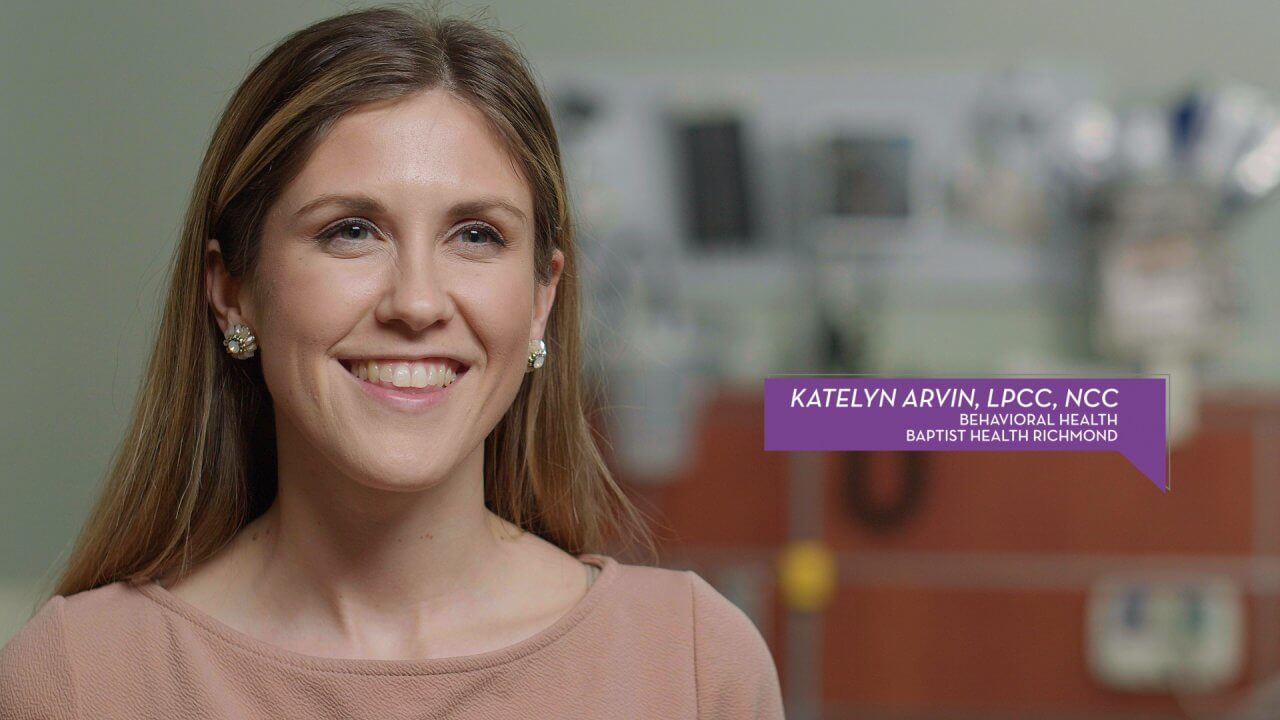Medication-Assisted Treatment for Opioid Use Disorder

Clinically reviewed by Katelyn J. Arvin, LPCC
Opioids are drugs made from or developed to mimic substances in the opium poppy plant. Prescription opioids include morphine, codeine, fentanyl, oxycodone, and hydrocodone.
Doctors prescribe opioids for various symptoms, including pain following surgery or from injuries or disease, coughing, and diarrhea. They can be taken by mouth, in a skin patch, by injection, or under the tongue. However, prescription pain medications and illegal opioids are also abused to produce euphoria or the sensation of being “high.”
Opioids are addictive drugs that can cause a condition called opioid use disorder (OUD). OUD affects millions of people in the U.S. and can lead to severe health problems or death. Baptist Health offers Intensive Outpatient Treatment at some of our locations that include the treatments listed below.
What Is Medication-Assisted Treatment?
Medication-assisted treatment (MAT) is the evidence-based use of medications, in conjunction with behavioral therapies and support services, to treat substance use disorders. MAT is an approach to substance use treatment that is tailored to fit an individual’s needs. It is approved by the FDA and can be used in treatment for conditions such as alcohol use disorder and opioid use disorder.
How Does Medication-Assisted Treatment Work?
Medication-assisted treatment is primarily used to address addictions involving opioids, including heroin and prescription pain relievers containing opioids. MAT works by helping restore normal brain chemistry.
It blocks the high from these substances as well as alcohol. MAT medications also reduce the patient’s physical cravings for the substance.
Studies have found that MAT is beneficial in several ways, including that it:
- Reduces fatal drug overdoses
- Decreases opiate use and related criminal activity
- Improves a patient’s ability to become and stay employed
- Improves birth outcomes when a mother has a substance use disorder
- Increases adherence to treatment guidelines
Ultimately, medication-assisted treatment can break the cycle of addiction and help prevent a relapse.
What Medications Are Used to Address Opioid Addiction?
The U.S. Food & Drug Administration (FDA) has approved three drugs for use in medication-assisted treatment for opioid addiction: naltrexone, methadone, and buprenorphine. These medications have been shown to be safe and effective when combined with counseling and support.
The length of a patient’s MAT is based on their specific symptoms and needs. The FDA doesn’t recommend a maximum treatment duration since OUD is a chronic condition. Treatment can continue indefinitely, but a patient’s doctor will periodically review their treatment plan to ensure it’s still meeting their needs.
Learn More About Medication-Assisted Treatment from Baptist Health
If you or a loved one suffers from opioid use disorder or another substance use disorder, you’re not alone. These disorders are common and not a reflection of a person’s character. They’re biochemical and can be treated effectively.
The substance use disorder experts in our Behavioral Health department understand the physical, psychological, and social challenges that patients with OUD face and develop treatment plans to address them. We’re here to help!
Contact your Baptist Health physician today to talk about your concerns. They can connect you with the resources you need to successfully treat your condition and get your life back on track. If you don’t yet have a doctor, you can find one online using our provider directory.


.jpg?rev=0037cb00980a4b5ebb00750849d9cde6)
